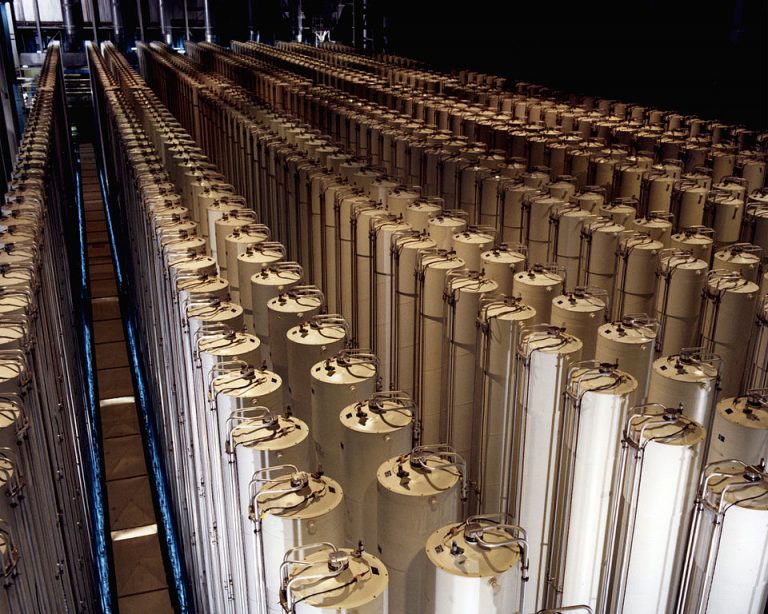
This article was originally published by Radio Free Europe/Radio Liberty and is reprinted with permission.
Iranian officials say the country has begun enriching uranium up to 60 percent purity, higher than it has ever done before, despite ongoing talks between Tehran and world powers to revive the 2015 nuclear deal.
State television quoted parliament speaker Mohammad Baqer Qalibaf as saying that Iranian scientists had successfully started enriching 60 percent uranium after midnight local time on April 16.
Ali Akbar Salehi, the head of the Atomic Energy Organization of Iran, later said on state television that the centrifuges at the Natanz nuclear site were now producing 9 grams at 60 percent purity an hour, adding: “Any enrichment level that we desire is in our reach at the moment and we can do it at any time we want.”
The move raises the stakes as Iran negotiates with world powers in Vienna over a way to bring Washington and Tehran into full compliance with the 2015 agreement, abandoned by the United States under former President Donald Trump three years ago.
Iran announced on April 13 that it planned to start enriching uranium at up to 60 percent purity in reaction to an alleged attack on the Natanz nuclear site two days before that they have blamed on archenemy Israel.
The UN’s nuclear watchdog has confirmed that Iran was preparing to enrich uranium to 60 percent purity at an aboveground facility at the site.
Under the 2015 nuclear deal, Iran had committed to keep enrichment to 3.67 percent. Recently it has been enriching up to 20 percent, saying the deal was no longer enforceable.
While enriching uranium to 60 percent would be the highest level achieved by Iran’s nuclear program, it is still short of the 90 percent purity needed for military use. Tehran has repeatedly denied it is seeking nuclear weapons and that its nuclear ambitions are purely for civilian purposes.
Iran and other parties to the accord — Britain, France, Germany, China, and Russia — last week launched what has been described as “constructive” talks aimed at reviving the nuclear agreement, with European countries working as intermediaries between Washington and Tehran.
Diplomats reconvened in Vienna on April 16 for a second consecutive day of talks. The previous day, they said two working groups would continue discussions and refine details on how to lift U.S. sanctions and bring Iran back into compliance with restrictions on its nuclear program.
U.S. Secretary of State Antony Blinken said late on April 14 that Tehran’s “provocative” announcement on enrichment “calls into question Iran’s seriousness with regard the nuclear talks.”
Britain, France, and Germany have expressed “grave concern” over Tehran’s “dangerous” announcement, saying it was “contrary to the constructive spirit and good faith” of ongoing efforts to revive the 2015 pact.
Few details have emerged about the alleged April 11 sabotage, which Iranian officials said knocked out power at the enrichment plant in central Iran.
Israel has neither confirmed nor denied involvement but multiple Israeli media outlets quoted unnamed intelligence sources as saying that the country’s Mossad spy service carried out a successful sabotage operation at the Natanz site.
Lawmaker Alireza Zakani, who heads the research center of Iran’s parliament, said in an interview that “several thousand centrifuges were damaged and destroyed.” Other officials said that only first-generation machines had been affected.
Citing two intelligence sources, The New York Times has reported that production at Natanz could be set back by at least nine months due to the attack.
0 comments :
Post a Comment